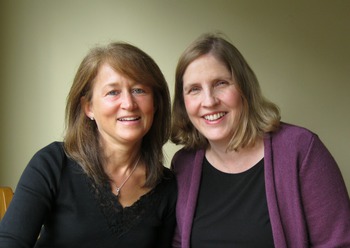
Luckily, all the schools in the Rye City School District have PTO Caring Committees, set up to help families in times of emergency.
 By Bill Lawyer
By Bill Lawyer
Luckily, all the schools in the Rye City School District have PTO Caring Committees, set up to help families in times of emergency.
When the extent and severity of Hurricane Sandy became known, the Rye High/Middle School committee was ready, with a hard-copy list of names, cell phone numbers, and email addresses of resources to meet any need. They even compiled a list of families with generators.
This school year, they have over 130 “members” who have made commitments to helping in one or more ways. But it wasn’t always that way.
Back in 2002 there was nothing. That September, a Midland School parent came down with a serious illness, and the family needed help. Midland mom Susan Gould took it upon herself to help organize a network of parents to provide food, transportation, and other services for the family.
The story had a happy ending, and the parent is doing well. But the incident got Gould to thinking: Why not have a network of volunteers lined up in advance to deal with situations such as these.
Recognizing that she couldn’t do this by herself, she reached out to other parents who had helped and was quickly joined by another Midland mom, Laura Slack.
Together, they got the ball rolling, and over the years the program spread to the other elementary schools, and to the middle and high schools.
While on the surface the caring committees might seem like just other “helping hands” kind of emergency aid program, in fact the system has been fine-tuned and developed to not duplicate the role of Rye’s churches, social service agencies, or the Red Cross in short-term disaster relief.
They have developed contacts with all of Rye’s institutions, so that they can make sure no request for help goes unanswered.
“The key to our success has been privacy and confidentiality,” says Slack. “Our help is usually provided to people who are going through traumatic health problems that affect the family’s ability to function. Often people who need help are very hesitant to ask. Frequently, they’re referred to us by otherparents, or school administrators. We have to be pushy in a nice way.”
The Caring Committees have set up elaborate procedures to make sure that any family requesting privacy feel confident it will be protected. Meals are delivered through third parties, or left in coolers on the doorstep with heating and serving instructions.
Over the years, the Caring Committees have developed a wide range of services that they can provide, in addition to meals. These include running errands, providing transportation, getting financial or legal advice, and helping with homework.
Gould and Slack rave about the enthusiasm and dependability of all their volunteer members. “All we have to do is ask,” says Gould, “and our committee members are on top of it.”
Two important changes have occurred in the committees in the last ten years, according to the co-chairs. The first was making sure that each committee has a co-chair to relieve the stress and that someone is always ready to get the services in motion. The second was making sure the program operates all year round, not just during the school year. “Just knowing we’re there makes them feel better,” says Slack.
One of their biggest operations was providing a wide range of help to families living in Highland Hall who had to live at the Marriott for two months after Tropical Storm Irene last year. Over 150 committee members were involved.
Next year will be a true test of the Caring Committee’s institutional strength – when Gould and Slack will pass their batons. Given their track record and communication skills, odds are that the committees will carry on their fine work in the years ahead.















